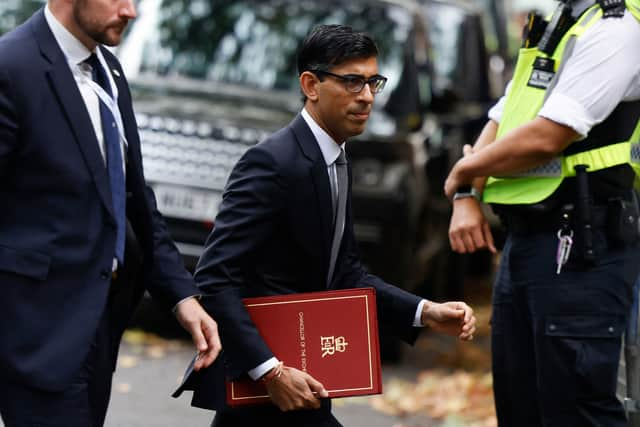London Councils call on extra investment in local services ahead of Autumn Budget 2021


London Councils is urging extra investment in local services to boost economic recovery and level up the country.
This is ahead of the Chancellor unveiling the Budget and Spending Review tomorrow
Advertisement
Hide AdAdvertisement
Hide AdThe cross-party group, which represents all 33 local authorities in the capital, says councils require long-term funding and increased flexibilities to take on key challenges such as youth unemployment, housing and infrastructure pressures, and achieving net zero.
Cllr Georgia Gould, Chair of London Councils, said:“The Chancellor needs to recognise that councils have played a vital role in responding to the Covid-19 crisis and their local services are equally important for securing economic recovery.
“London has been hit hard by the pandemic and we share the government’s determination to build back better. By giving boroughs enough resources to drive green and inclusive growth, the government will make faster progress on many of its top priorities – including tackling the jobs crisis and spreading opportunity to disadvantaged communities.
“The tough fiscal climate only strengthens the case for investing strategically and putting down payments on future economic growth across the UK. Supporting London and its local services is an integral part of this.”
Advertisement
Hide AdAdvertisement
Hide Ad

In its submission to the Spending Review, London Councils highlighted the following recovery priorities:
- A new deal for young people. London has the UK’s highest unemployment rate at 5.8% (compared to the UK average of 4.5%), and youth unemployment is a particular concern. Over 100,000 (one in five) young Londoners (aged 16-24) are unemployed. London Councils is offering to work with the government on a package of reforms to existing schemes – like Kickstart, Restart and the Apprenticeship Levy – to provide more tailored support for disadvantaged young Londoners.
- Supporting a green recovery. Boroughs are determined to reduce carbon emissions in the capital and ensure London plays a leading role in helping the UK achieve net zero. London Councils is calling for new financial incentives to encourage retrofitting of homes across the capital and for the promised £3.8bn Social Housing Decarbonisation Fund and £2.5bn Home Upgrade Grant to be delivered.
- Unlock housing through infrastructure. A financially sustainable transport system is vital for all Londoners and businesses. It can also unlock housing delivery and economic growth. To support affordable housebuilding, boroughs are seeking an extended Affordable Homes Programme, greater flexibility over how Right to Buy sales receipts can be used, and long-term social rent certainty over 30 years to aid local investment in social housing.
- Supporting Global London. London is home to many of the sectors where the UK holds a global competitive advantage: life sciences, cultural & creative industries, digital and financial services. It is also the tourism hub for the UK. Boroughs believe the Spending Review should prioritise growth sectors and consider innovative ways of relaunching the visitor economy to support Global Britain and benefit businesses across the whole country.
London Councils estimates boroughs require up to £2bn of additional funding over the Spending Review period to meet underlying demand, inflation and the ongoing impact of Covid-19 on lost income and additional spending.
In its submission, London Councils also stresses that boroughs have seen a 25% reduction in funding since 2010 – despite population growth meaning that boroughs now serve a million more London residents.
Comment Guidelines
National World encourages reader discussion on our stories. User feedback, insights and back-and-forth exchanges add a rich layer of context to reporting. Please review our Community Guidelines before commenting.